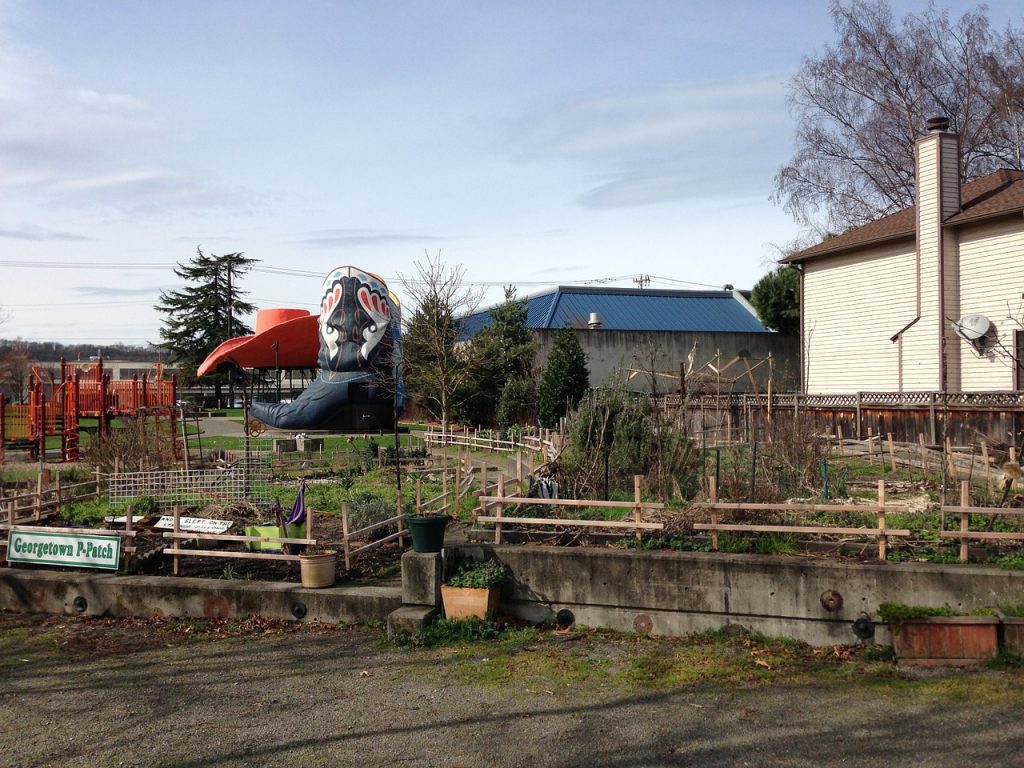If you are doing all of your grocery shopping in large retail grocery stores, you may miss out on some great deals. Farmer’s markets and food co-ops are great alternatives for food shopping. What is a food co-op? How can a co-op save you money on food and reduce your carbon footprint? Keep reading for helpful info to start a food co-op in your community.
Posts feature partner companies & may be sponsored. Post contains affiliate links & I will be compensated if you make a purchase after clicking on links. As an Amazon Associate I earn from qualifying purchases.
Table of Contents
What is a Food Co-op?
So, what exactly is a food co-op? It can be as strict or loosely formed as it’s members want. Basically, a food co-op is a grocery store that’s owned by the people who shop there. So, you (as a member) help decide what products are stocked on the shelves. As a result, you offer opinions on where those items come from. Furthermore, this gives you control over quality standards that both products and vendors must meet.
✯Don’t want to miss the next post?✯ Follow Turning the Clock Back on Facebook | Twitter | Pinterest Or join the private Facebook group for simple tips on going green!
Why Start a Food Co-op?
The average meal in the U.S. travels 1,500 miles from farm to plate. Fresh fruits and vegetables are shipped around the world so that we can have them year-round, regardless of the local season. And fruits and vegetables from another part of the world often compete directly with those produced locally. Starting a food co-op in your area lets you source local food to reduce your carbon footprint.
More Sustainable Food Articles to Read:
- Sustainable Seafood Companies and the Importance of Sustainable Fishing
- Restaurant Food Waste Facts: How to Reduce Food Waste When Eating Out
- Reasons to Support Sustainable Palm Oil Suppliers

Benefits of Starting a Food Co-op:
What would happen if your organic fruits and veggies came to you? Would you be more likely to keep them in your diet? If so, maybe starting a food co-op in your community is just the answer you’ve been looking for.
A food co-op is traditionally defined as a grocery store. However, there are now companies who deliver to your doorstep. Essentially, your dwelling acts as the grocery store, “drop-off” and “pick-up” location. Both are excellent options depending on your needs. Why start a co-op?
- Co-ops may bring the community together – First of all, you will meet new people who are passionate about food.
- You may benefit from discounts – Co-op members often get discounts on produce compared to non members.
- Save time : If you get co – op delivered food, you can skip through the produce section at the super market. As a result, you spend less time shopping!
- Eat local all year long. Freeze food for later use. Therefore, you eat local, even in the winter. (check out my post about the benefits of eating locally grown foods for more info on that!)
- Keep your money in the community. Almost all food co-ops support local farms when possible.
- Get more variety in your diet – Since most co-ops offer what is in season, selection is always rotating to meet optimum freshness. Due to this fact, you may be challenged to try new foods!
- Get creative! Produce is often cheaper from co-ops. As a result, it’s an excellent source to make homemade baby food.

How to Start a Food Co‐op
Think starting a food co-op sounds intriguing. Now what? How do you create a food co-op in your area? Here is a quick guide that might help:
- Do extensive research. If you’re serious about starting a food co-op, you need to become an expert on the topic.
- Define your mission: What is your goal for creating this food co-op? Are you creating it to save money? Bring the community together? Maybe you want to do your purchase only local or organic products.
- Create a tribe of helpers. Because this is a huge undertaking, you will need help. A lawyer, marketing expert, local chef, etc may all have different skills to add to the group.
- Gather facts and figures early. Will you have a physical location? How much will that cost to rent? What are the laws in your community that may affect your food co-op.
- Spread the word: Advertise in newspaper ads, radio, flyers, signage, and old fashioned word of mouth. Get the community to talk about it.
- Hold meetings. Get community input via town hall meetings. Have informational flyers available. Take questions and listen to opinions from community members. Take down contact information of anyone interested in helping or joining!
- Create a website. Many people turn to the Internet to learn more about their community food co-op. Therefore, it’s important to put information online.
- Do the math. Decide how much you will have to charge members to make this a viable operation. Talk to financial experts and tax advisers about your new food co-op. What equipment will you need? Will you have paid staff? Apply for grants and loans if possible.
- Consider location. If your food co-op will have a physical location, decide where it will be. Pick a location that puts it in a convenient area of town.
- Create a membership system. Offer a signup form, a way for people to pay, possible investment options, etc.
- Form relationships with local farmers. Above all, work closely with local farmers to secure good deals for members.

Examples of Food Co-ops
Look for good examples of food co-ops before you start planning your own.
The Co-op Market is located in the middle of a food desert in Fairbanks, Alaska. It is a full service, natural foods cooperative grocery store and has more than 3900 invested Owners. It emphasizes local products and connecting with small farmers and fishermen in the region.
The Upper Valley Food Co-op is in White River Junction, Vermont. This is near where my family lives and it’s a small, close-knit community. The co-op runs a community garden and a monthly movie series on topics related to nutrition and the environment.
Don’t think you can start a food co-op? Look for one nearby! Do a little research and find a local co-op that has maybe already developed in your area. Watch this video about the advantages of shopping at co-ops, and check this directory for information about food co-ops near you.
(post updated and content added from previous publish date)

Diane is a professional blogger and nationally certified pharmacy technician at Good Pill Pharmacy. She earned her BS in Microbiology at the University of New Hampshire and has worked in cancer research, academics, and biotechnology. Concern over the growing incidence of human disease and the birth of her children led her to begin living a more natural life. She quickly realized that the information she was learning along the way could be beneficial to many others and started blogging and freelance writing to share this knowledge with others. Learn more about her HERE.


What a great article! Loads of helpful information. We have a food co-op opening in the town next to us that I am thinking of joining.
Here in Los Angeles there’s several. Despite the lack of easily available crop land and our water issues, many inner-city folk are making it happen, particularly in underprivileged areas. (Personally I subscribe to a CSA from the Central Valley [Abundant Harvest Organics] because their drop point is more convenient for me.)
The South Central Farmers (http://www.southcentralfarmers.com/) which originally was growing on an industrial plot in the heart of the city but eventually due to land ownership issues had to relocate up in Bakersfield over 100 miles away (still nearby according to food miles standards).
Community Services Unlimited operates an urban micro-farm co-op (http://www.csuinc.org/programs/villagemarketplace.html) that pairs education in local elementary school settings and at-risk youth mentorship with food production.
There was also Food from the Hood (http://www.certnyc.org/ffth.html) started by Crenshaw High kids after the ’92 Rodney King riots.
The Watts Garden Club (http://www.wattsgardenclub.net) also does a lot of work getting food gardens into housing projects around LA, supplying food to elderly supporting their grandchildren, as well as helping out the South Central Farmers, teaching High School students to analyze their junk food for undesirable components (like whether the ingredients were GMO or not), and even working on international food stability projects.
Thanks for this information! Sounds like a great way to get more organic produce. Too bad there isn’t one near me on the directory 🙁
Thanks for all the helpful information. It can be a little daunting to think about joining a co-op but you made it sound so appealing it would almost hard not to!
Great article. My pastor is starting a co-op. I think it’s a wonderful idea.
Excellent article! I loved all of the great information. I have never even heard of a food co-op. Yes, I live a very sheltered life, lol.